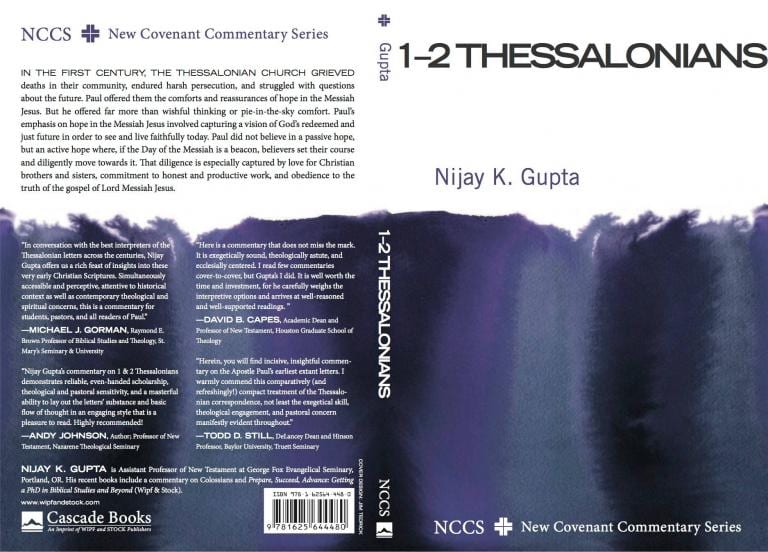
I am excited to report that my commentary on 1-2 Thessalonians (New Covenant Commentary Series, Wipf & Stock; ed. Mike Bird and Craig Keener) will be published in the next few weeks. In the run up to that release, I thought I would have a bit of fun and do a blog series: “Everyone is Wrong (Except Me)”. One might look at yet another commentary on 1-2 Thess and wonder if there is anything “new” to discover. The point is fair, as there are lots of outstanding Thessalonian commentaries (Marshall, Malherbe, Gaventa, Weima, to name just a few). My commentary is a theological and pastoral work, so my goal was to penetrate to the theological heart of the text. And I think I have made a good crack at it.
BUT – and this is the point here for this post – I did try to re-think scholarly assumptions wherever I could and move into some new directions or push assumed consenses.
So, with a bit of tongue-in-cheek, this blog series is meant to say – I think I am right, and the rest of y’all are wrong! (For those of you without a sense of humor, stop reading….now). There are some issues in 1-2 Thessalonians where I think many scholars have got it wrong. Here I stand, I can do no other!
Without further ado.
Everyone is wrong about Acts 17:1-10.
That is, a remarkable number of Thessalonian scholars are skeptical about the historical usefulness of Luke’s account of Paul (and Silas) in Thessalonica (most notoriously, Ascough and Koester). (Because of this noisy skepticism, many more are bashful about using Acts to aid the study of 1 Thess.) This is probably for three reasons. First, many doubt Acts’ overall historical reliability. Secondly, Acts 17 follows a strong narrative pattern in Acts of Paul going to the synagogue, getting ousted, and then turning to pagans. To many, the pattern is too stylized to be considered historical. Thirdly, the conversion of some Jews and many pagan godfearers (according to Acts 17) seem to contradict 1 Thess 1:9 – Paul implies the Thessalonian church was nearly all former polytheists who “turned from idols.”
I will deal with this last point in a separate blog post. Here I just want to say a couple of reasons why I think everyone is wrong on this.
Firstly, about the patterns in Acts. Yes, those patterns are there. Yes, it does imply editing and embellishment. But we should not ignore the fact that Luke does not present a static portrayal of the Jews, or conversions, or Gentiles. There may be stylization in broader patterns, but the details vary enough to allow for Luke to bring in the color of the region or the development of the specific situation. For example, the Jews of Thessalonica are portrayed as hostile, but the Jews of Bereoa are noted to be more open-minded (17:11). Historians tell us these were, indeed, rival cities.
Secondly, I want to bring up a key point about doing historical work. Sometimes we biblical studies folk create our own weird rules and methods that (non-religion) historians of Antiquity might find odd (*historical Jesus scholars, I’m looking at you*). I have spent quite a bit of time studying how classicists, archaeologists, and historians of Antiquity study the history of ancient Thessalonica (nb., they tend to call it Thessalonike, or Thessaloniki), and every single one of them incorporates Acts 17 (so, e.g., Nigdelis, Kyrtatas, Allamani-Souri). Some of them explicitly note that Luke clearly has a theological agenda, and narratival patterns – but in no case have I found anyone discounting Acts 17 as a legitimate historical source. This should go without saying, but all such historians cautiously draw from Acts the same way they would from any ancient source. Utilizing Acts is not just an “evangelical” thing to do – cautiously drawing from Acts is just good historical work.
My own preference, then, is to find the best way to bring Acts 17 and 1-2 Thess together to paint a historical picture, and only discount material from Acts 17 that would out-and-out contradict Paul’s own words. But I did not find such contradictions.
So, everyone is wrong, except me.
Stay tuned for more in this series.











